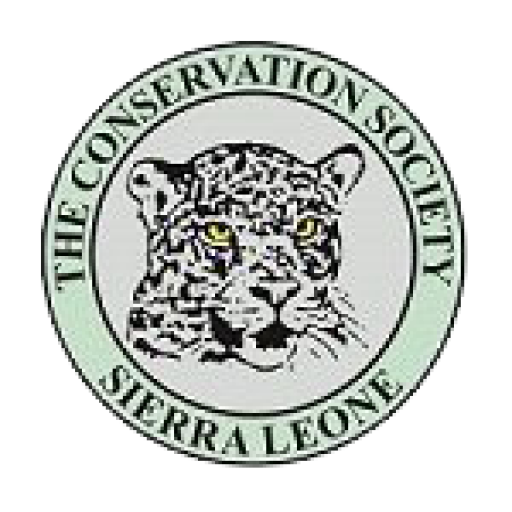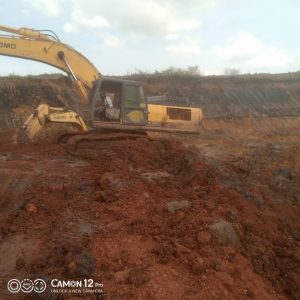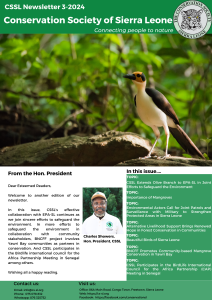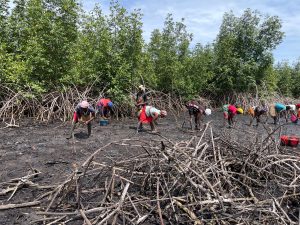Climate resilience and women’s empowerment are two of the most important entry points to reach the global Sustainable Development Goals (SDGs). For too long these two topics have been handled on their own, forgetting how close they are related. More climate resilient communities go along with gender equality and women’s empowerment. The USAID funded WABiLED project, being implemented by the Conservation Society of Sierra Leone (CSSL) in the eastern province of the country, showcases the interrelation of the two topics and how it can help an entire community when they are taught together.
After a two-hour drive through lush forests and amazing landscapes in Nomo chiefdom, 50km south of Kenema, the small town of Faama is located. Faama is one of the forest-edged communities in the project area. CSSL has been engaging the community members before the WABiLED Project, with trainings in community forest management, land use mapping as well as reforestation activities. “Our main focus in these communities is community forest management, land use mapping and planning; and habitat restoration, ensuring sustainable utilization of the limited natural resource and help reduce deforestation of the existing forest,” explains Moses Lusenie, Smart Officer of CSSL. “The interesting thing about our engagements here is that we can see some differences in the farming methods, the knowledge regarding climate change and climate resilience and conservation. We can also see some differences in how the community members work together and involve each other in their daily activities.”
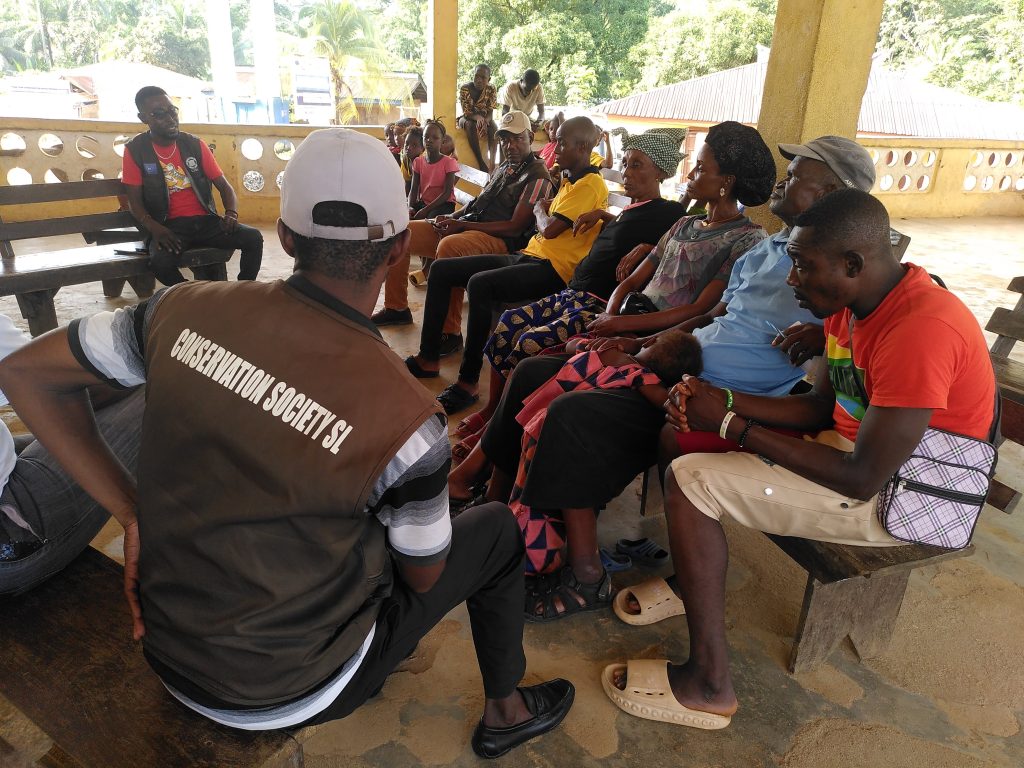
As always, CSSL works towards gender equality. Sustainable development in communities will not be successful if women are not involved. When asked about the biggest changes that happened already in the community since CSSL started its work there, the answers from community members were amazing. Mammie Jane, the Chiefdom Women´s Leader remembers: “When I reflect five years back, we believed that only men could do plantations. Women were involved in few aspects of up-land-rice and swamp farming, but no mixed cropping plantations including cocoa, pineapple, groundnut, oil palms and others. In most of the project meetings, CSSL sensitises us that upland-rice farming is one of the most causes of deforestation influencing Climate Change. But most importantly, in most of their meetings, it was clear, they tell us that there should be at least more women in the project related groups or committees.”
We women got the same sensitisations and trainings as the men in the committees. Me, I started with pineapple and banana farming. I also have cashew trees now. Before now, the men did not consult us when they travelled to Kenema to sell our farm products. We couldn’t negotiate any price; we had to accept whatever they gave us. But now, they consult us. We learned about prices per kg, for example, cocoa, how farm products are sold and other market related knowledge. The position of women in the community is improving a lot. Before, we didn´t have anything to say; but now, we are consulted to negotiate and advice
Mammie Jane, the Chiefdom Women´s Leader
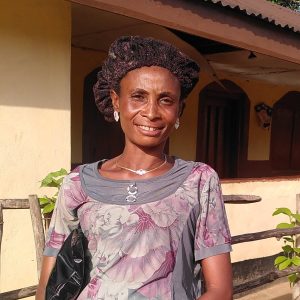
Mammie Jane’s speech tells you that she is confident and that, she knows some of her rights. The men at the meeting only smiled and nodded. It seems like they are accepting the gender equality. Abubakar Mansaray, the Youth Chairman confirmed what Mammie Jane said. Before now, he was also involved in cutting new forest every year for upland-rice farming only. He was one of those going to Kenema on motorbikes to sell their farm produce. He says, “…we didn´t consult with our women in all of that. It is however changing a lot since then. We all see the benefit for our family and the community. Not only with the mixed-crop farming methods on the farmlands immediately around the community, but also the women’s involvement in decision-making and farming.” Today, Mansaray is one of those who try to persuade others to minimise deforestation for upland-rice farming and adopt climate smart agricultural practices for the protection of the forest landscape and the community.
CSSL has been working with communities in the region, but started full engagement with the five target communities and inhabitants in Nomo chiefdom during the PAPFor Project leading to the current WABiLED Project. It was a long way to go. “When we have finally signed the MOU (Memorandum of Understanding) with the communities of Nono chiefdom, an important milestone was reached”, explains Patrick Dauda, Land-use Planning and Community Forest Pilot Lead for the CSSL-WABiLED project. “We have been working with the communities in Nono chiefdom since then, but there was a deep-rooted challenge (misconception) that their community forest might be taken away from them which led to extreme resistance to work with CSSL and Gola Rainforest Conservation (GRC).” This was resolved through series of engagements and by the MOUs signed by communities “Me, I have been one of the main champions to advocate against cooperating with Gola and partners. I have to admit. We thought that we would not be allowed to enter our forest anymore. Today, I am in the Forest Management Committee, and one of those who advocate strongest to work with CSSL and protect our community forest. I understand now how important the forest is to us, and the benefits we get when we protect the forest, which is why we are minimizing deforestation for upland-rice farming to adopt climate smart agricultural methods”, admits Mammie Jane.
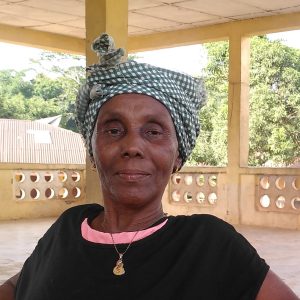
From my point of view as the Town Chief, I am very happy and proud to see some of the developments of the last years. Since we accepted CSSL and Gola to work with us, the situation of the entire community is improving, especially for the women. Before now, the women were doing upland rice farming while the men owned the plantations with more cash crops. They did not involve us and they did not support us. Now things have changed. Women are involved in the decision-making processes. Women, together with their men, have plantations.
Jenneh Hassan, Town Chief, Faama community
“Women, together with their men, have plantations. Women sell their products for themselves and contribute in supporting their family. That makes us very proud and happy. It makes us stronger and more resilient. Now that the community works together through the forest management group and others, we are stronger as a community. Another important thing is that, we never knew how big our forest was until recently. Through the Community Forest Mapping, Resource Mapping and the mapping of the degraded areas for restoration, we know all of that now. It is important for us to better plan our land-use patterns. I am very grateful to CSSL for this project, and I hope that we can continue together. I am happy that, as a Town Chief, I can hand over a healthier community to our children.” continues Jenneh Hassan.
As this is the planting season, the restoration of the mapped degraded lands is next on the agenda of the project. The community – women and men – are ready to participate in the restoration activities and go forward with CSSL and protect the community forest for future generations. Let´s give them the support they need to go ahead and continue the way towards a sustainable and equal society.
Click on the link for information about our WABiLED project
